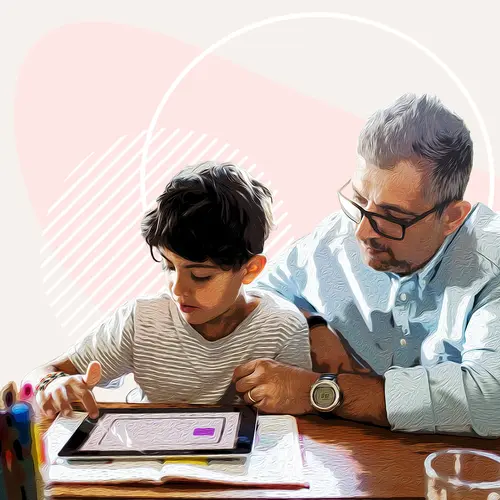If your child has ADHD, it’s important to talk with him about it.
"It's never too early to start talking with your child about his ADHD," says Patricia Collins, PhD, director of the Psychoeducational Clinic at North Carolina State University.
You want them to be involved, to understand, and to be on board," says Terry Dickson, MD, director of the Behavioral Medicine Clinic of NW Michigan and an ADHD coach. "I have two children with ADHD, so I can speak from experience here."
What you say should be appropriate for his age, but your goal is the same: To help your child understand what ADHD means, what it doesn't mean, and how to be successful at school and in life. You'll talk about it many times as your child grows and develops.
"You need to help your child feel special, and like he is part of the plan," Dickinson says.
These 8 tips can help:
1. DO make sure your child feels loved and accepted.
Help him understand that ADHD has nothing to do with his intelligence or his ability, and it's not a flaw, Dickson says.
You could tell him treatment can help his brain focus better, just like someone wears glasses to see better.
2. DO pick the discussion time wisely.
"It should be a time when you are unlikely to be interrupted," Collins says.
Try to pick a time when your child isn't eager to do something else, like playing outside or before dinner or bed.
Leave some time for follow-up, so you're available to the child after the conversation is over if he has extra questions.
3. DO let your child know he’s not alone.
Many other people have ADHD, too, and everyone with ADHD can be successful.
Give your child examples of people who have or had ADHD that they might know, like Walt Disney, Michael Phelps, and singer Adam Levine. It may help your child to talk with someone who has ADHD, such as a relative or close family friend.
Let your child know he is special and can succeed.
4. DON'T expect instant interest.
Don't be surprised if your child doesn't respond immediately or seems uninterested, Collins says.
It takes some children, particularly younger ones, time for new information to make sense, or to know what questions to ask.
5. DO learn more about ADHD.
Talk to your doctor, or reach out to advocacy and support groups in your area.
"One of the best things you can do is talk to other parents who already have experience with ADHD about what they've learned," Collins says.
6. DON'T focus on the negative.
"Focus on their strengths, what they do well, and praise their accomplishments," Dickinson says.
"Whether its sports, arts, or dance, they can pursue their interests and do well with your support."
7. DON'T let your kid use his ADHD as an excuse.
"Kids can't take the easy way out by blaming their setbacks on their ADHD," Collins says.
"Parents need to help their child understand that ADHD is not a reason to not turn in homework, to not try their hardest, or to give up."
8. DO maintain open communication.
"One conversation is just the beginning," Dickinson says.
"Keep the dialogue going, talk about school, their friends, homework, extracurricular activities, and keep a positive attitude."

